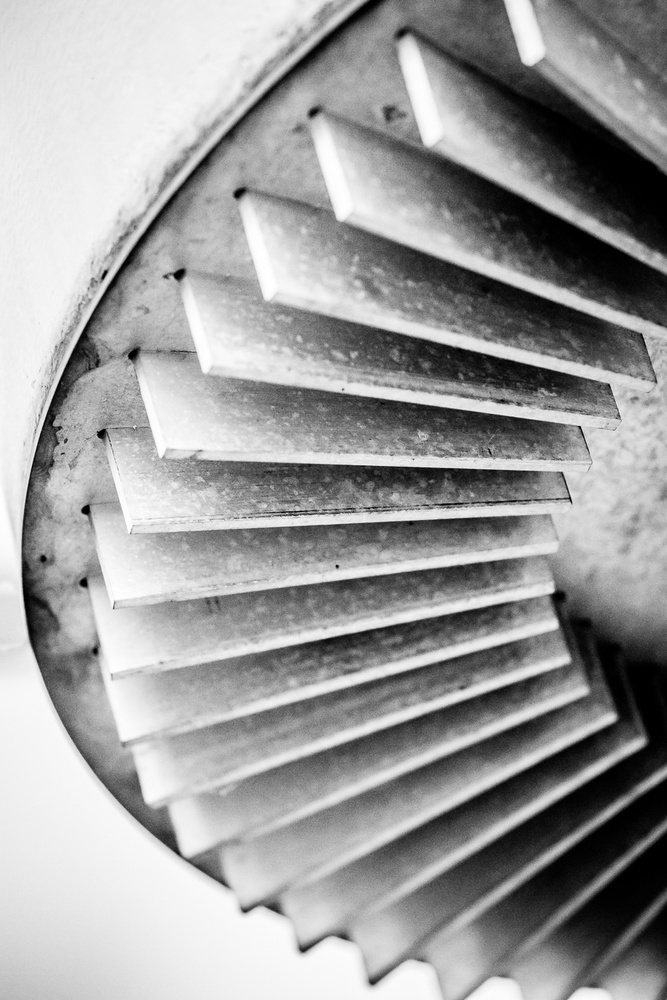It's always nice to capture a subject in its purest form, presenting it powerfully. However, shooting an abstract photo can turn an ordinarily drab subject into a work of art.
Merriam-Webster defines abstract as "disassociated from any specific instance, difficult to understand, insufficiently factual, expressing a quality apart from an object, and having only intrinsic form with little or no attempt at pictorial representation or narrative content." Abstract photography is also called conceptual or non-objective photography.
The nice thing about abstract photography is that it's all subjective; there is no right or wrong abstract photo. It tends to bring out the real artistic side of the photographer.
Here are five reasons you may consider shooting abstract photos.
It Makes You Focus on Composition
The basis of most abstract photography is the focus on color, shapes, lines, angles, and other aspects of composition more than ever. Often, composition makes or breaks an abstract photo. Reveal too much, and it's just a poorly composed photo. Centered subjects need to be spot on in the center, lines and curves virtually become the subject, instead of just a part of it. Where you place things is often the most crucial part of an abstract.
When I shoot an abstract, I aim to make the viewer think about what they're seeing. I want them to wonder about what they're seeing. For me, the perfect abstract photo is one that the viewer must look at for a while to figure it out, and once they do, they say, "Oh, I see it!"
However, another photographer may see abstracts as something else, and each has its own artistic flair. Abstracts shine a light on the heart and mind of the artist.
It Makes You Look Beyond the Obvious
When I aim to take an abstract photo, I'm forced to look beyond the obvious subject in front of me. I must study it and decide how I can preset it in a way that may not have been seen before.
It's almost as fun taking the photo as it is watching people figure it out. This is incredibly fun when it's something they have seen before, as in this photo:
When I visited the Gateway Arch in St. Louis, the plain overcast sky inspired me to shoot the previous photo. It's one of my favorite abstracts, as it's obvious once you know what you're seeing. If you've been there, it might be more obvious than if you have never seen it in person.
It Can Teach You Fine Control of Your Equipment
Abstract photos that incorporate Intentional Camera Movement (ICM), macro, lots of bokeh, and leading lines can be quite challenging. These techniques force you to learn your equipment, and those skills are also applied when taking regular photographs. Choosing the right shutter speed is often a matter of trial and error, which makes it even more fun for me. With ICM, you often don't know what you're going to get until you look at the finished photo.
Often, tiny differences in settings or composition can make a huge difference in an abstract image. Take many photos and decide which one you like most later.
It Teaches You Minimalism
Minimalism is one of the most used techniques of good photography. Include just enough to make the image and exclude anything that detracts from the subject.
Abstract photography often lives in the realm of minimalism. One of the best ways to start with abstracts is to minimize your composition. Introduce a level of mystery by making it hard to figure out what or where something is.

These cooling fins are about 12 inches across, but the tight composition excludes any hint of scale. My friends were shocked when I told them they've walked past this many times.
It Teaches You New Techniques
Shooting abstract photos teach you to use new techniques that you may usually never use. Those techniques may include shooting through objects, intentional camera movement, extreme lighting conditions, extreme close-ups, or even radical compositional cropping.
Perhaps one of my favorite aspects of abstract photography is that anything goes! It's all about artistic vision. I always believe that learning new skills often improves other skills that we already have. Experiment and don't be afraid of taking shots that might not turn out, sometimes, they turn into abstracts!









I am a big fan of ICM. It's probably my favorite of the abstract styles.
abstract shot with Bower 500mm f6.3 & 2x converter. This lens is a catadioptric mirror and produces circular bokeh.
I enjoyed this!
Abstract art is the higher seller overall because people don't want to hang a photo of someone else at home or especially at work unless it is so deconstructed it is less portrait and more abstract.
This is a great article on abstract photography. When I was visiting the Gateway Arch in St. Louis I realized how hard it was to not photograph the arch in a cliche way. So I decided to make abstract photos of it. Here's one of them, you can see more of them on my blog here: https://matthewtrader.com/abstract-photos-of-the-gateway-arch-in-st-loui...
I love it! For a second my brain was thinking "stretched Washington Monument?" - but then I was like "Oh! Nice!"
Thanks Mike!